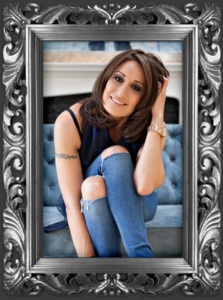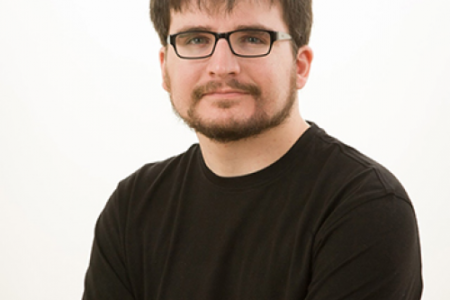We were asked by Cargo to interview Icelandic thriller writer Yrsa Sigurðardóttir. It didn’t take very long to think about that, so Amanda and Alexander went to the Ambassade Hotel in Amsterdam to sit down with Yrsa to have a talk with her about her books, writing and Mary Poppins..
You live in Iceland and work as an engineer. Why don’t you write about your area of expertise?
As a child I lived in America, later I studied engineering in Canada. I wrote one book that was [about that]. I worked for about five years as a tactical manager supervising a hydro project, a huge project in the highlands of Iceland. I stayed for ten days and came home for four days, and there was nothing to do. I found it very interesting socially, eating with your co-workers, sleeping alongside them, almost brushing your teeth at the same time. And co-workers are different from family.
I did write about such a camp, a work camp, but because I did not want it to be associated with the project, I moved it to Greenland and turned it into a mining camp. That was the only time I wrote about engineering because I didn’t want my co-workers to think I was taking notes on the job. Is it easier to write a story that has nothing to do with your daily life? I think so. I try to keep the two separated. I do not discuss my books at work; there’s my job and there’s the writing. I find it better that way.
You started out as an author of children’s books. What made you want to write thrillers instead?
I wrote a few children’s books and they are full of humor. I got so tired of being funny, it’s such a fine line, like walking on a tight rope. You can easily go over the top and be ridiculous or not funny at all. It really is an art. And I wanted to write for a more mature audience. When you write for children, there are certain things you can’t write about. It’s also difficult to write grown-up characters in children’s books, because children like to read about kids. Grown-ups can only be in children’s books if they are very exaggerated. Very stupid or very evil or very wise. And that became tiring, I wanted to write about normal, more realistic adults.
Why did you start writing children’s books?
I started writing children’s books for my son. I am a reader, as a child I loved reading books. When my son was about eight, he wasn’t reading and I have a theory – well, I think It’s a fact – that readers are more empathic. If you read as a child, you can put yourself in situations that you couldn’t otherwise. It gives you the opportunity to be a different person and as a result you have a broader horizon and can be kinder. I was worried for my son because he wasn’t reading. So, I looked at books that were available at the time and they all had the need to teach the children a lesson: that life is super difficult, and you had to accept that and don’t even try to have fun. For example, there was a book about a kid who couldn’t celebrate Christmas because his parents were alcoholics. So I decided to write books for the age group of 8-12-year olds that were more comic situations, and I ended up writing five books. My son didn’t read any of them. He became a reader later though, so he’s not a bad person.

You also write about young people in your thrillers. Could that be because of the children’s books?
No, not really. It’s more because when someone gets killed, there’s always children that are affected. In the stories with the child psychologist, I needed the children to get her involved in the story. She works for an institution that actually exists in Iceland, that helps children who become victims of a crime. I didn’t want every book to be about her interrogating a child, so the children get involved in different ways; as a victim or a witness, or somebody’s child.
It’s a very urban series. It takes place in the city, it has police, it’s realism. In Iceland, when something happens, because of the close connection of the families, there’s always children involved. And the thing is, when you write a about a murder, it’s not your typical real-life murder. In real life, people get killed by people who are drugged, or drunk or jealous or angry. A murderer might get away, but he didn’t plan the murder. Usually it’s not very complex.
So, you’re writing about murders that are not typical, and to get the reader to buy into the story, that something like this has never happened but it could happen, you have to have credible characters, describe society in a credible way, and everything has to be realistic. Then you can get away with an extreme murder plot. So, I try as hard as I can to paint a realistic picture of the characters and society.
I find Freya to be an interesting person. She wants to be part of something, but that doesn’t work out the way she wants.
I don’t like writing about super characters, where they are the smartest or the best. I think there’s always someone who’s better or smarter. Most people are just normal people. I wanted her to be that and still be interesting. My characters have backstories that I try to slowly write into the story, to make them human and three-dimensional.
When you write a series, your protagonist usually fits into one of two categories: there’s the protagonist who never changes and there’s the one who develops throughout the series. One is not better than the other. Characters like Hercule Poirot and Jack Reacher never change or change very gradually. Their circumstances are always the same and you can write many books about them. But if you write about characters who develop themselves, there’s a limit before it gets boring. You don’t want to write them anymore and you feel that you’ve taken everything out of the character.
I’ve finished this series now, with six books in all, even though I wasn’t tired of it yet. I finished it so that I would never become tired.
That’s why I wrote six books in the lawyer series, and a few standalones that were more horror stories. Now I’m writing a standalone that is horror: proper horror. And part of the reason for ending a series, just like many authors, is that you don’t want to write a bad book. You want the reader to buy a book, because books are not cheap, and you do not want the reader to go, “What is this garbage?!” Write what you want and do your best every time. The hardest book to write is the book after the one that did well, because people have expectations.
Do you know beforehand how many books you want to write in a series?
For this series I did. At first, I knew I wanted them to continue, but didn’t have a number in mind. My agent needed a number, so I thought: Since I did five children’s books, I’ll do six. I stuck to that number, although I could have written one more without getting tired of it.

Do you plan each book, or do you come up with each story as you write? Did you know what the series would be about?
When I started, I didn’t know. I knew when I started thinking of the story. I knew from the first page that those two characters wouldn’t become a couple, or if they did, maybe it would only be on the last page, since I didn’t want to write a story about a couple shopping for groceries. I knew I wanted to write a series, because I’d written three standalones, and there’s pros and cons to writing standalones, but I started missing writing a series. When you write a standalone, all the characters are disposable. You can kill them all or do whatever you want with them.
When you write a series, you already have the main characters established. The downside is that you have to introduce them to the readers that haven’t read any of the earlier books, without boring the readers that have. After writing six books in the series, I now look forward to writing a standalone.
Of all the books you’ve written, which one is your favorite?
I like the second one in this series a lot, because it was inspired by an actual case. I was really angered by it and it’s a very violent book because of that. I also like the ghost story that I wrote, which has been made into a film. The film is different from the book, but I liked writing it. It’s full-on horror, but in a slow burning kind of way. The reason I haven’t written a new horror story for ten years is that this one was such a hit; if I would write a new ghost story, it would always be compared to that one. And I didn’t want to copy the format I wrote it in. But now I’m fine with it.
How do you do research for your thrillers?
It’s quite easy. It’s such a small community, access to people and information is easy. For example, for the children’s house, you can easily speak with the head of the house and get whatever you need from them. Of course, they don’t give you any information on case studies, but all the information that they’re allowed to give is easy to get. That old case was from when I was a kid. Now all the information is on the internet, so I could read through what happened. The girl from that case had also written a book about it.
Research for my current book is a bit more difficult, because it’s set in the highlands of Iceland and the weather has been so bad that I can’t go there. I need to be there, to see it. I can’t write about something that I haven’t seen or smelled. In terms of locations, I mean. I’ve never seen a dead body. I’m waiting for the weather to improve a little, so I can go there and get a feel of the place.
How long does it take you to write a book?
I write a book a year. I usually start in February and finish by early October. Then it comes out in early November. This year, I’m writing two books. While I’m waiting to go to this location, I’m working on a children’s book. I wanted to take a year off from work, but I made the mistake of saying “yes” when they asked if I could help with this and that. Women, we always say yes. So, it’s not actually a year off, but I do have more time.
You mentioned the book that was made into a movie. Did you have any say in that process?
They were very nice. I met the director and said I didn’t want to be involved. That was the wise thing to do because it’s such a different medium from a book. There was a bit of a miscommunication, they thought they couldn’t ask me anything, but that wasn’t the case.
They did a great job, though. They used things in the movie I would’ve never used in the book, but that worked great in the movie. As an author, it’s difficult to see things get taken out, so authors tend to be pretty annoying to scriptwriters, who know what they’re doing. Besides, I want to write a new book and not work on a previous book again.
It took me a long time to see things I would have done a little bit different, had I been involved. Like the weakness of the female character. At one point, they sent me the script and asked me if I could say something nice about it, but I just couldn’t read it. So I said, it’s the best script I’ve ever seen. When I went to the premiere, I knew nothing about the movie. But I was happy with the result. Sometimes you just have to trust people.
But isn’t it also your baby? No, not really. I always say it’s my grandchild. It’s never good if grandparents are too involved with the conception.
The books that are being published here now, are books you wrote three years ago. Isn’t it difficult to talk about books you wrote a while ago?
The thing with this series is that every book in the series is set around something that annoyed me a lot, so I remember these books very well. When I was writing the Thora series that was different, then I had a hard time remembering what the books were about.
Each book has a different topic. This one is about bullying. Do you have personal experience with bullying?
I was never bullied, and I was never a bully, but I’ve seen it happen to the child of a friend of ours. When I was growing up, there wasn’t even a word for bullying. It was teasing or kids being kids. But I think it wasn’t as nasty as it is today. It’s a horrible thing.
The reason why I chose this topic is that there was a huge discussion about cyberbullying. An 11-year-old boy had just killed himself. The youngest person ever to commit suicide. He thought it was better to die than to keep living like this. It amazes me how difficult it is to stop it. You’re talking about kids that usually listen to what grownups tell them to do. And through social media, it has become from something that is awful to something disgusting. I usually choose topics that are close to my heart or that really make me angry.
Is it difficult to translate those sentiments to different countries?
I don’t think so. Iceland is a modern society and in the Western world we’re all going through the same issues. The books in Iceland are not written specifically for Icelandic people. It translates fine to different countries.

Are there any topics that are off-limits because they’re difficult for some countries?
No, not really. I can’t think about that when I write a book. I write what I like. If they don’t like it that’s just the way it is.
Do the reactions differ much per country?
A bit, especially for the original series. It’s about a lawyer and I made sure she didn’t resemble me in any way; I didn’t want people to think that it was about me. She has a son who makes her a very young grandmother – he becomes a parent at a very young age, like me.
I have a son and he phoned me a week before the book came out and asked me if we could meet in a coffeeshop. Then he told me I was about to become a very young grandmother. So in the end, everybody thought I’d written a book that was about me. For this series, the Americans had a problem with the way she reacted to him having a baby so young. They didn’t find it credible; they were so young and not married. And I said: “It is credible, [a baby] is always something to be happy about.” Some of them had a problem with that. But if I’d written that she became very angry and made a huge thing of it, that would have been very unrealistic to the Icelandic readers.
How does it feel to see your books being published all over the world?
It’s very nice. When you write, you want to be read by as many readers possible. Many people write but are afraid to take the next step of sending it out into the world. When you want people to read your story, [you have to do that] and the audience is so much larger, Iceland has few readers.
When I wrote the children’s books there was no intention, I never thought this would happen. It’s also very strange, I don’t think about it a lot. It’s nice to go to other countries and meet other readers, but I never think about that when I write. I think it muddies the water if I start thinking about how people will react. It’s important to write for your original audience and if it works for others then that’s great, but you can’t please everyone.
Are you involved in the translation process?
Sometimes, but not really. I do a lot of work with my English translator. Translators are fluent in the language they’re translating into, but don’t have to be great at the language they’re translating out of. Usually they don’t live in Iceland. I have lived there, but I don’t live there anymore.
In every book, there’s always going to be something they don’t understand. My English translator is great at phrasing something in a way that makes it understandable for everyone, not just Icelandic people. I think most of the other translations come from the English edition.
If there’s something the translators get stuck with, they will check with me. I do worry sometimes when I hear nothing because there’s always something. The comforting thought is that all the parties involved in the translation process want it to be to a good translation and to make it a success.
What books do you like to read?
I read thrillers, but I also read other genres. I read a lot of horror. It’s difficult to find good horror books, though. Bookshops tend to place them with other genres, like fantasy or vampire novels, and those are not horror. Vampire books are romance novels in disguise.
I also like to read sci-fi books. I don’t read that many fantasy books, but the ones I’ve read, I really liked. But they’re usually these massive books.
I try not to read a lot when I’m writing, especially not in Islandic, because it contaminates the thought, even word usage. I also read a lot of crime novels or thrillers.

Who’s your favorite author?
I like Sophie Hannah, I like the way she writes about women that go nuts. She does that so well. I like Lars Kepler, Maria Adolfsson, Camilla Grebe and Jussi Adler-Olsen. I’ve read so much, and when you get older you stop having favorite things; you don’t have a favorite band or favorite color anymore. It just chips away. I like the Scandinavian authors. I don’t think I have ever read a Dutch author.
And Stephen King. I haven’t read his books recently. I started some book, but I didn’t like it. I’ve heard the new crime novels are good. That’s probably why I like this genre. His books came out when I was young, like Salem’s Lot, The Shining, Carrie, Cujo and every single one was fantastic. That was really the top for horror, and it’s been going a bit down ever since.
Do you have a routine when you’re writing?
Not a routine, really. When I write, I sit on the sofa in front of the tv and play horror movies. Not to watch them, but to feel the ambiance. For the first book in the Children’s House series, DNA, I watched The Walking Dead, and every time I looked up there was someone being brutally murdered. That was a good ambiance for writing. I don’t need seclusion or going into the woods to write in a cabin, but I can’t write in an airport, where it’s too noisy.
And do you plot? Basically. I know where it ends, and I know where to begin. But very often, this changes. I like to send the story to my publisher chapter by chapter, and after ten chapters I’m able to read it as a reader. Then I can see if it’s missing something. And then, I usually change the way I’m going with the story. After thirty chapters, I know where it’s going.
My poor editor only knows how the book ends by the final chapter, and then it’s only a month before it gets published. I hate the idea of writing a full first draft of the manuscript and to realize it doesn’t work before I get to the end. This way I can see early on if there’s something wrong and am able to fix it without too much effort. This works for me. My editor and I have been working together for 15 years, so it works.
It’s also a way to get a realistic reaction. If you know what’s going to happen, it’s different. As a writer, it’s sometimes difficult to distance yourself from the story and to understand how it would be for a reader, especially with horror. When I finished the ghost story, I thought to myself, “This is so not scary”. But when it came out in Iceland, people wanted to put the book in the freezer. They didn’t want it anyway near their bed.
That’s so hard to judge, the element of fear and horror because it’s base on anticipation. We’ll see how it works this time. I’m looking forward to it, but also am a little bit worried. I jump around a lot with genres and that’s not maybe the smartest thing to do in a market sense, but I don’t want to think about the market before I write.
People do have expectations though. They probably expect more of the same and horror is maybe not to everyone’s taste?
Sure, but it’s what I want to write. In the beginning you want everybody to be happy, but that’s never going to happen. The only thing you don’t want is for people to go out and by an expensive book and think it’s rubbish. So, they should put a sticker on the cover that says this is a ghost story!
Do you read reviews of your books?
Sometimes. I do read reviews by bloggers [on their websites] because I value the input. It’s good to know what people think and learn from it. You can’t really learn from websites like Amazon, where people say “I hate the book” because delivery was two days late. It’s best not to read all reviews; it can be quite depressing. You can easily forget the good reviews and focus on the negative ones. I realized that very quickly. It felt like putting your soul through a shredder. So, I stopped looking for them. Even though there are some very nice positives ones.
The last question is off topic. How do you say supercalifragilisticexpialidocious in Icelandic? (My partner dared me to ask you this question)
Oh, err. That would be supercalifragilisticexpialidokur. Sounds like the original. (Don’t tell her I had to look it up, there was a play recently in Iceland)
Interview: Amanda & Alexander
Transcript: Alexander
Interview & corrections: Yfke
With thanks to uitgeverij Cargo & Ambassade Hotel Amsterdam








